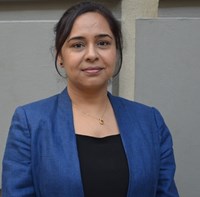Sustainable development goals in conflict
The study investigates the potential incompatibility of SDGs, specifically socio-economic development and environmental sustainability, and reveals that the focus on economic growth and consumption underlies this. It suggests there are factors which can contribute to development (health programmes, government investment) and ecological sustainability (renewable energy) without triggering the conflict between incompatible SDGs.
The paper is open access and may be downloaded in full from the following link:
http://dx.doi.org/10.1080/13504509.2016.1235624

What do you make of the results?
Agenda 2030, with its 17 SDGs, goes beyond the earlier Millennium Development Goals to aim for ecological sustainability in addition to alleviating extreme poverty with socio-economic inclusion. Traditional economic growth results in environmental degradation. While Agenda 2030 moves the world in the direction of sustainable development, it is a process fraught with challenges. We quantify this inconsistency of economic growth that fulfils socio-economic targets and simultaneously hinders environmental goals. Our analysis of historical data suggests this inconsistency is hard to reconcile unless we change our development path from the status quo to one of growth and investment in social infrastructure and renewable energy.
What does this mean for stakeholders working with the SDGs?
It implies a fundamental change in behavioral choices and decision-making by all stakeholders, whether governments, companies, consumers, international organizations or civil society groups. Irrespective of the level at which the stakeholders function, they need to make choices and decisions that promote socio-economic inclusion and environmental sustainability, and not just a better economy. This will present situations where the stakeholders are faced with tough decisions as improved economic growth might conflict with social inclusion or worsen environmental quality.
Who do you think should be interested in your findings?
All stakeholders should be aware and sensitized to the inconsistencies, challenges and trade-offs in attaining sustainable development. At the same time, there are effective choices and investments that we can make to move towards development paths that are more synergetic.
What would you like to do next to follow up?
I am working on two other papers that develop this research further. In a co-authored paper with Fan-Yang Wallentin of the Department of Statistics, Uppsala University, we investigate the sustainable development quagmire. Estimating a new measure of Sustainable Development we compare it to the United Nation’s SDG dashboard measures and the Human Development Index (HDI). We take this analysis further to find, which one of these three pillars (economic, social, environment) that underlie the SDGs are most effective in achieving sustainable development. This could be particularly important for stakeholders faced by decisions where these three objectives are pulling in different directions.
The second paper is co-authored with Örjan Sjöberg, where our intent is to decode sustainable markets. Reviewing the multi-disciplinary literature in the field of economics, business administration and sociology we examine sustainable markets and their implications on businesses. We make concrete suggestions on how businesses can move towards sustainable markets.
Both of these papers are forthcoming as SIEPR working papers, Stanford University, USA.



